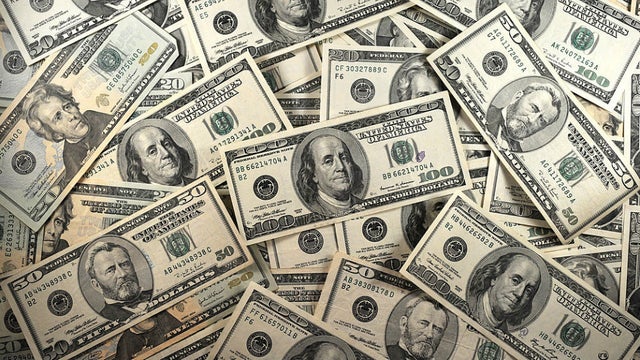
The Trump administration is engaged in bold initiatives to tackle some of the most urgent challenges facing the United States, from Chinese stealth economic piracy to the opioid crisis.
One way to advance this agenda would be to defund the kleptocrats, terrorists, drug cartels, and other criminals who threaten the security of the United States and our allies. By addressing weaknesses within the American financial system, the United States could also make the moral argument for democratic capitalism in the face of rising authoritarianism and economic corruption worldwide.
The first step would be for Congress to address the money laundering vulnerability created by anonymous control of American shell companies. Unlike the European Union, on this matter, the United States does not mandate collecting corporate beneficial ownership data.
In all 50 states, less information is required to register a company than to obtain a library card. It is almost impossible for our intelligence and law enforcement agencies to investigate who benefits from American incorporation to launder illicit proceeds or exert malign influence within our economy.
The ability to secretly transfer stolen wealth into the United States and other secure jurisdictions has fueled a corruption bonanza across the developing world, resulting in illicit financial flows that now unfortunately dwarf humanitarian aid and development expenditures. The enabling role of the United States in this problem cannot be ignored. A World Bank study found that American companies were used alarmingly more often in grand corruption cases than those companies from any other country.
This spread of kleptocracy, or “rule by thieves,” has harmed the poorest and most vulnerable populations worldwide most of all. But it also destabilizes entire regions, creating new fertile recruiting ground for terrorist groups and other security challenges for the United States. Strategic rivals and rogue regimes, such as China, Russia, North Korea, Venezuela, and Iran all rely on crime and corruption to consolidate their grip on power and promote their foreign policy. That shows why nothing enrages the Kremlin more than attempts to highlight the stolen wealth of Vladimir Putin and his cronies, as the Hudson Institute found out last year.
As General David Petraeus and Senator Sheldon Whitehouse have noted recently, “The fight against corruption is more than a legal and moral issue. It has become a strategic one, and a battleground in a great power competition.” It should therefore be of grave concern that the beneficial ownership issue hamstrings not only law enforcement, but also State Department and Treasury Department officials tasked with fighting this rising authoritarian influence and economic corruption worldwide.
At meetings of the Financial Action Task Force, the intergovernmental global watchdog tasked with fighting money laundering, anonymous companies are a stumbling block to closer coordination with our allies and enable our adversaries to deploy “whataboutism” to distract from their own misdeeds. By tackling corporate anonymity, Congress would strengthen the American financial system and allow our government to pressure less scrupulous jurisdictions to do the same. It would choke off avenues for state backed crime and corruption, eventually rolling back the malign economic influence of authoritarian regimes worldwide. Indeed, the United States could accomplish all of this without compromising on privacy rights or placing new undue regulatory burdens on business.
These issues are especially relevant in the context of the great power competition with China. Some of the major Chinese companies now accused of espionage and rampant intellectual property theft, including Huawei, appear to have obscured their ownership structures in order to conceal the controlling hand of Beijing. Chinese entities routinely use front and shell companies to circumvent American sanctions on North Korea, Iran, and other dangerous regimes. Moreover, such illicit financial networks facilitate the Chinese global monopoly on counterfeit goods, the value of which is estimated to grow to up to $2.8 trillion and cost more than five million jobs by 2022. Chinese organized crime networks also rely on financial secrecy to launder profits from the deadly trade of fentanyl.
Paradoxically, Xi Jinping has sought to promote China as an alternative model of good governance, partly through his domestic campaign to combat corruption, from which his own allies have emerged from largely unscathed, and a Belt and Road Initiative that has expanded through dirty deals that often leave recipient countries hopelessly indebted to Beijing.
Indeed, the United States has a better offer for populations impoverished by transnational kleptocracy, but it must lead by example. To counter rising authoritarian corruption and make the argument for democratic capitalism in the 21st century, we should first end corporate anonymity in the American financial system. The United States will then be in a much stronger position to reassert sovereignty over its own financial borders and lead its democratic allies in promoting the rule of law worldwide.
Kenneth Weinstein is president and chief executive officer of the Hudson Institute, where Nate Sibley is a policy fellow in the Kleptocracy Initiative.
Original article: THE HILL